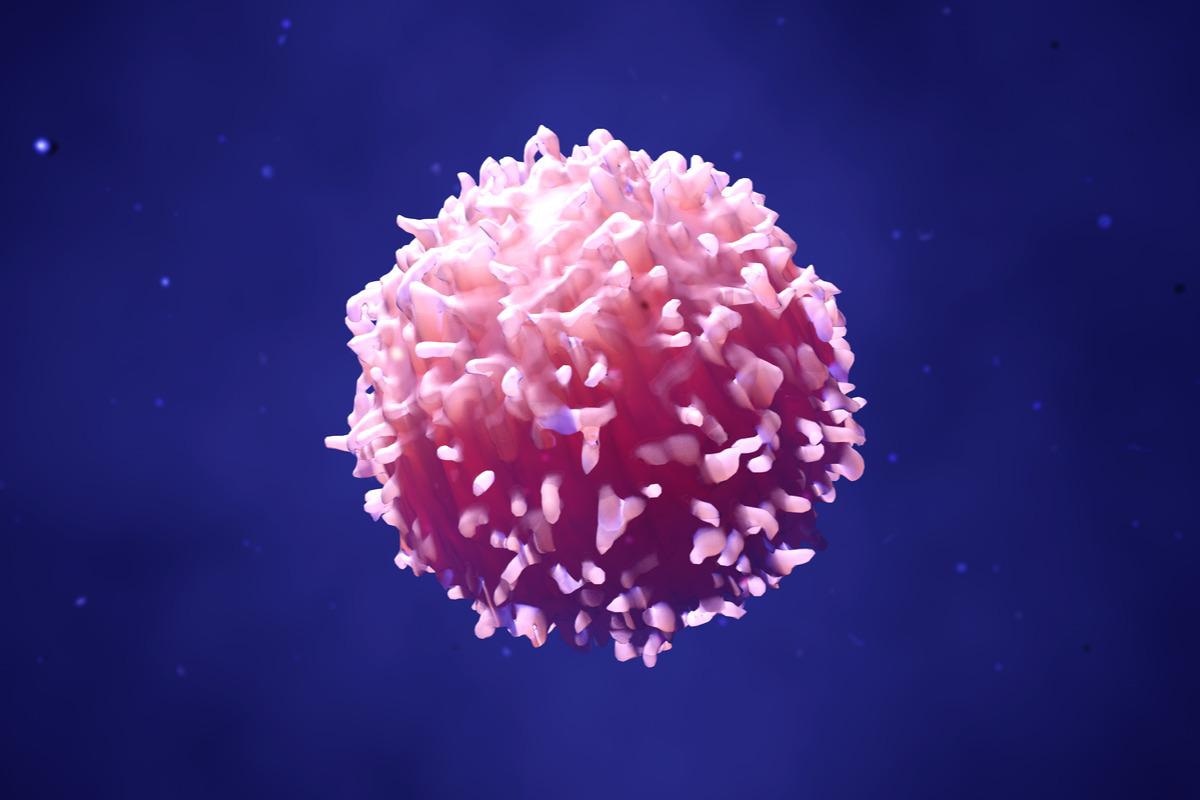Scientists have worked at an unprecedented speed to develop vaccines to protect individuals from severe acute respiratory syndrome coronavirus-2 (SARS-CoV-2), the causal agent of coronavirus disease (COVID-19) pandemic. Several COVID-19 vaccines have received emergency use authorization (EUA) from global regulatory bodies and, subsequently, vaccination programs commenced in most countries across the world.
 Study: SARS-CoV-2 vaccination diversifies the CD4+ spike-reactive T cell repertoire in patients with prior SARS-CoV-2 infection. Image Credit: Design_Cells/Shutterstock
Study: SARS-CoV-2 vaccination diversifies the CD4+ spike-reactive T cell repertoire in patients with prior SARS-CoV-2 infection. Image Credit: Design_Cells/Shutterstock
Background
Previous studies have revealed that COVID-19 vaccines developed by Pfizer-BioNTech and Moderna elicit strong CD4+ T cell responses. Researchers stated that, unlike natural infection, which needs exogenous or endogenous processing of several viral proteins, mRNA vaccines result in transcription and translation of SARS-CoV-2 spike (S) glycoprotein, which offers robust immune protection against different antigenic spike-derived epitopes.
Scientists stated that very limited evidence is available regarding immune responses in COVID-19 convalescent individuals who received the SARS-CoV-2 vaccine. Typically, serum antibody titers are evaluated to study the length of SARS-CoV-2 immunity and CD4+ helper T cell responses (immune memory cells). These cells determine the concentration of cytotoxic T cells and levels of antibodies upon re-infection with SARS-CoV-2.
Previous studies have revealed cross-reaction of CD4+ T cells between SARS-CoV-2 and endemic common cold coronaviruses (CCCs). The immunologic memory of cross-reactive T cells should play an important role during present as well as possible future zoonotic coronavirus outbreaks. Importantly, a study reported that endogenous T cell responses elicited from COVID-19 infection protected macaques from re-infection. However, it is not yet clear if vaccination of COVID-19 convalescent patients (CCPs) provided additional protection against re-infection or if natural infection provided sufficient protection.
Although a prior study has shown that mRNA vaccination enhances COVID-19 antibody titers in CCPs more than natural infection, the T cell response to vaccination in this group is unclear. Therefore, it is important to determine the clonal nature of the vaccine-induced T cell repertoire and assess the post-vaccination changes in the SARS-CoV-2-reactive T cell repertoire in CCP.
A new study
A new study published in eBioMedicine has focussed on determining the clonality and levels of SARS-CoV-2-reactive CD4+ T cells in CCPs post-vaccination. Researchers also compared this level with vaccinated CCP.
In this study, scientists conducted the viral Functional Expansion of Specific T cells (ViraFEST) assay to determine SARS-CoV-2 reactivity at the CD4 TCR Vβ clonal level. This T cell assay can positively identify antigen-specific T cell receptor (TCR) clonotypes. The ViraFEST assay helped evaluate the SARS-CoV-2-specific repertoire produced via vaccination and natural infection. One of the advantages of this assay over the conventional ELISPOT or intracellular cytokine stimulation assays is that it can determine reactivity and repertoire at the clonal level. This helped researchers to investigate if immune response post-COVID-19 vaccination enabled cross-reaction or SARS-CoV-2 mono-reactive T cell clones.
Key findings
Researchers stated that TCR repertoire diversity, precisely CD4+ T cells, is fundamentally polyfunctional, thereby providing more effective immune protection. In this study, researchers revealed that COVID-19 vaccination induces monospecific SARS-CoV-2 reactive T cells with greater functionality.
Several studies have linked high avidity TCRs with greater elimination of the virus. These studies have emphasized that vaccination is essential for producing a long-lived and dynamic repertoire of SARS-CoV-2-reactive T cells, even in CCP. The finding of the present study is consistent with the above-mentioned studies. Further, the current study demonstrated that, with time, all patients post-vaccination exhibited significant clonal contraction in both the groups, i.e., vaccine-induced and infection-induced clones. This finding supports previous reports of declining T cell responses over time.
In the future, more research must be conducted to evaluate the duration of vaccine-induced immunity, especially after hybrid and booster vaccination. Not much evidence explains why COVID-19 vaccination produces a divergent TCR repertoire compared to natural infection. However, scientists presume that the mRNA vaccine elicits spike-specific T cells that are effective against a wide range of spike epitopes, which are highly functional in the presence of IL-2 and IFN-γ. These are typically present due to Th1 memory responses in previously infected cells.
Scientists of this study believe that improved formulation of the mRNA vaccines and mono-antigen approach would help activate unique T cell repertoire, which is different from those activated during natural infection. Additionally, an optimized spike transcript and activation of innate sensing molecules could lead to different spike epitopes presented on MHC class II molecules. The authors stated that there is a possibility that the mono-antigen decreases the effect of epitope competition from nucleocapsid and non-structural epitopes and, thereby, triggers distinct vaccine-induced repertoire.
Conclusion
One of the limitations of this study is its small study cohort. However, the authors revealed that the findings of this study have enhanced the understanding of immune repertoire induced by the COVID-19 vaccine in individuals with a history of SARS-CoV-2 infection. This study emphasized the importance of vaccination in COVID-19 convalescent individuals for enhancing the diversity of T cell responses to the SARS-CoV-2 virus.